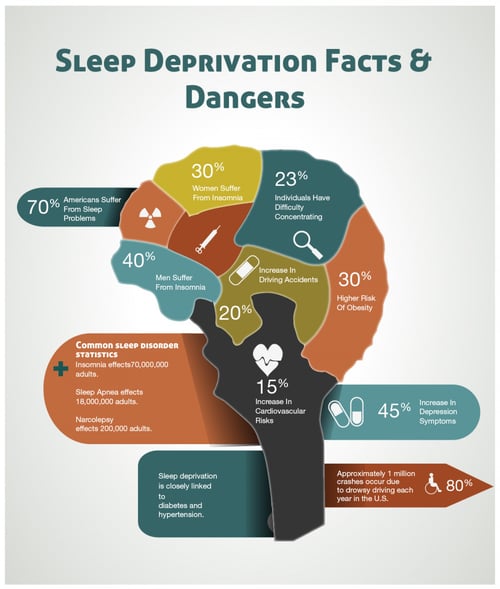Narcolepsy is a sleep disorder that brings about an overwhelming and sometimes uncontrollable longing for sleep. It causes sudden and unexpected episodes of sleepiness, occurring at any given moment and in any location. As a result, the regular patterns and rhythms of sleep become disrupted, leading to individuals with narcolepsy experiencing multiple sleep episodes throughout the day, followed by difficulty sleeping at night.
Irregular sleeping patterns can have significant consequences, impacting not only our daily lives but also our overall health. This is especially true for individuals with narcolepsy, a sleep disorder characterized by sudden and uncontrollable sleepiness. Narcolepsy disrupts the regular patterns and rhythms of sleep, leading to multiple sleep episodes throughout the day and difficulty sleeping at night.
There are two types of narcolepsy: Type 1, which includes cataplexy, and Type 2, which does not. Cataplexy is when strong emotions trigger a sudden loss of muscle tone, causing a range of symptoms from slack jaw to full body collapse. It is estimated that around 75% of individuals with narcolepsy have Type 1.
Identifying the symptoms of narcolepsy is crucial for diagnosis. These symptoms include sleep attacks, excessive daytime sleepiness, cataplexy, sleep paralysis, hallucinations, and disrupted nighttime sleep. Sleep attacks are sudden onsets of extreme sleepiness, similar to hitting a wall of exhaustion during the day. Cataplexy involves the sudden loss of muscle tone in response to strong emotions. Sleep paralysis is a temporary inability to move or speak upon waking up or falling asleep. Hallucinations can occur before sleep or upon waking up, taking the form of vivid, dream-like visions or delusions. Irregular sleep patterns also contribute to sleep deprivation in individuals with narcolepsy.
The causes of narcolepsy are not fully understood, but current research suggests a combination of genetic and environmental factors. It has been identified that a gene linked to narcolepsy is carried by approximately one quarter of the U.S. population, but only 1 in 500 people with this gene will develop narcolepsy. The loss of a brain chemical called hypocretins is believed to play a role in narcolepsy, as hypocretins are involved in regulating the sleep-wake cycle.
Narcolepsy is a relatively rare condition, affecting about 1 in every 2000 people. However, the average time to diagnosis from the onset of symptoms is approximately 7 years. Narcolepsy typically manifests in individuals between the ages of 10 and 30. It is estimated that only 25% of people with narcolepsy have received a formal diagnosis. Unfortunately, there is no cure for narcolepsy, and it is a lifelong condition. Studies have shown that narcolepsy can have a significant impact on quality of life, comparable to epilepsy. Around 75% of individuals with narcolepsy also experience cataplexy.
There are various risks associated with narcolepsy, particularly in terms of safety. Individuals with narcolepsy may experience driving accidents due to sleep attacks. Sleep deprivation, a common result of narcolepsy, is linked to lower life expectancy, heart disease and stroke, decreased immune function, weight gain, lower glucose metabolism, and increased inflammation.
Management of narcolepsy involves a combination of medication and lifestyle adjustments. Diagnosis requires a sleep study to evaluate sleep patterns and symptoms. If you relate to many of the symptoms described in this article, it is important to contact your doctor or a sleep specialist for further evaluation.

Causes of Narcolepsy
Narcolepsy occurs as a result of a deficiency in hypocretins, which are chemicals in the brain that regulate the sleep-wake cycle. Without these chemicals, the body is unable to properly control the sleep process.
While the exact cause of hypocretin loss is still not fully understood, researchers believe that a combination of genetic and environmental factors play a role. Additionally, a specific gene has been linked to narcolepsy, which is carried by around one quarter of the U.S. population. However, it is important to note that only about 1 in 500 people with this gene will actually develop narcolepsy.
Fascinating Facts about Narcolepsy
Here are some intriguing facts about narcolepsy [project-sleep]:
· It is a relatively rare condition, affecting approximately 1 in every 2000 individuals.
· On average, it takes about 7 years from the onset of symptoms for a formal diagnosis to be made.
· Narcolepsy symptoms typically begin to appear in people between the ages of 10 and 30.
· Shockingly, only 25% of people with narcolepsy have received a proper diagnosis.
· Unfortunately, there is currently no cure for narcolepsy, making it a lifelong condition.
· Studies have shown that narcolepsy has a significant impact on quality of life, comparable to epilepsy.
· Approximately 75% of individuals with narcolepsy also experience cataplexy.
Risks Associated with Narcolepsy
Due to the symptoms of narcolepsy, there are certain safety risks associated with this sleep disorder, such as driving accidents. Additionally, the sleep deprivation that often accompanies narcolepsy can lead to:
· Lower life expectancy
· Increased risk of heart disease and stroke [source]
· Decreased immune function (individuals who sleep less than 7 hours are three times more likely to develop a cold compared to those who sleep 8 hours or more)
· Higher likelihood of weight gain
· Lower glucose metabolism and increased risk of Type 2 diabetes [source]
· Higher levels of inflammation [source] (individuals with conditions like IBS may have already noticed a connection between their gut health and sleep)
Treatment Options for Narcolepsy
The management of narcolepsy involves a combination of medication and lifestyle adjustments. Formal diagnosis requires a sleep study. If you identify with many of the symptoms mentioned in this article, it is important to seek further evaluation from your doctor or a sleep specialist. Get started by taking a free online sleep test.
If many parts of this article sound all too familiar, you should contact your doctor or one of our sleep specialists immediately. Take this free online sleep test to get started.


